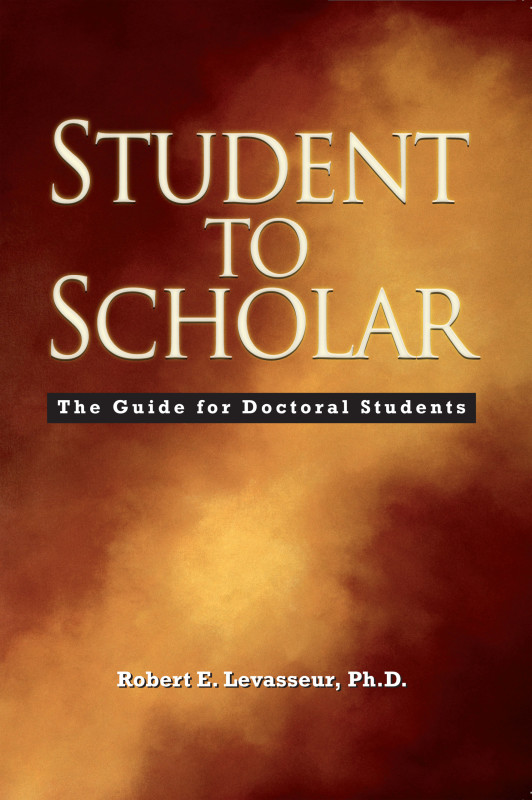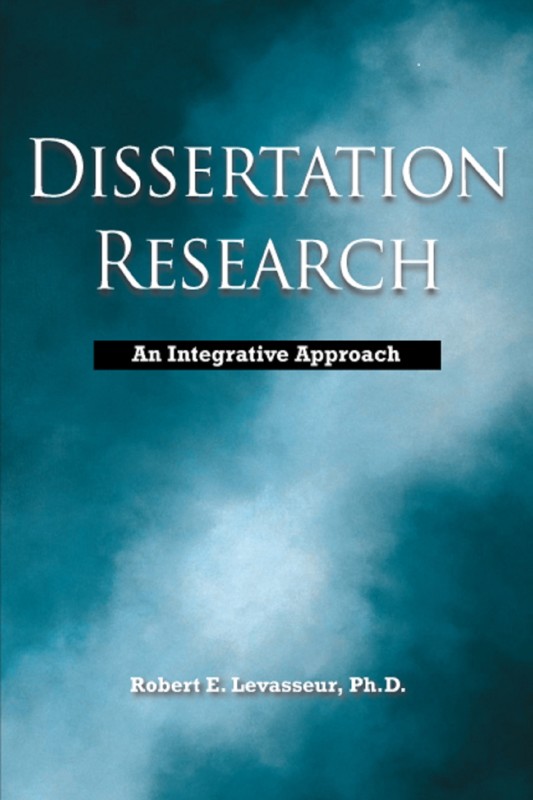Dissertation Research: Finding a Dissertation Committee
Earning a doctorate is not just about writing a quality dissertation. That is necessary, but not sufficient. Besides selecting a dissertation committee whose members have the expertise to assist you in crafting your dissertation, you must choose a chair with the knowledge and competence to guide you through the dissertation review process.
Because choosing the members of your dissertation committee is a crucial decision that can make the difference between earning a doctorate or being ABD, you need to do so with care. But how do you decide who should be on your committee and why they should be on it?
Choosing a Committee
Committee selection starts on the first day of your program. Take advantage of every opportunity you have to meet the faculty in your area of interest, especially if you are pursuing your doctorate via a distance education program and will not see the faculty on a regular basis like students in a bricks and mortar institution, to determine which of them you might want on your dissertation committee when the time comes. Some of the decision criteria you should consider in selecting committee members are:
Expertise
Chemistry
Responsiveness
Student Centeredness
Interest and Availability
The Chair
Expertise
You want faculty on your committee who have content and methodological expertise. A content person will help you to (a) ground your research in the literature, (b) design a research project that has the potential to add new knowledge to your field of study, and (c) interpret the meaning of your findings in relation to the existing literature in your field.
A methodology expert will help you to design and conduct a research project to answer your research questions (or test your hypotheses) in a way that follows accepted research methods, and thus has internal validity, reliability, and external validity. [Note: Although the individuals on your committee should collectively provide you with both sets of expertise, this does not necessarily mean that you need a content expert and a methods expert. One person may provide both types of expertise.]
Chemistry
Other than the obvious need to find faculty with the expertise you require to complete your dissertation successfully, it is imperative that you relate and work well with the people on your committee. Because completing a dissertation is a time consuming and demanding activity, it is better to think of your committee, especially your chair, as potential colleagues rather than as mere advisors. If you find a highly qualified faculty member who could provide needed expertise, but to whom you do not relate well, do not ask that person to serve on your dissertation committee. Life is just too short to put up with the aggravation that might come from trying to work with such a person.
Ideally, you will want to construct a harmonious committee. Your dissertation chair can really help you to find the right people with the right chemistry. After all, he or she will be the primary guide on your doctoral journey. So, put together a preliminary list of candidates using these five criteria and others of your own, but expect your chair to have a major say, if not the final say, about which of these faculty members, or others you may not have considered, would work well together and provide the necessary expertise.
Responsiveness
While expertise, and to a lesser extent chemistry, are characteristics that occur to most students when considering potential dissertation committee members, responsiveness is one that many fail to consider. It is incumbent on you to assess the responsiveness of each potential committee member. There are many ways to do this, including (a) working with the person, (b) talking with other students who have worked with or had the individual as an instructor or mentor, (c) sending an email or leaving a voice mail message to test the person’s responsiveness unobtrusively, or (d) just asking the individual about his or her policy on responding to students. Use any method you wish, but do not fail to determine the responsiveness of each potential member of your committee. Otherwise, when your patience is at its ebb from waiting for what seems like an interminable time for a response to a question or a review of a proposal or dissertation draft, you will regret your lack of diligence.
Student Centeredness
One of the most important criteria that you should consider when selecting committee members is whether or not they are student centered. By student centered I mean that they are truly concerned about their students’ well-being and will do what it takes to enable them to learn and succeed. Given the unique demands of the dissertation, which is a new learning experience for all who undertake it as well as a demonstration of research competence by a student whose research skills are in the early stages of development, the importance of having student-centered committee members who are patient and supportive can hardly be overstated. Personal experience and reputation are the two best ways to assess the student centeredness of potential dissertation committee members.
Interest and Availability
Once you have made your selections, you can ask each of the faculty on your list if they would be willing to serve on your committee. Each request should include an overview or prospectus summarizing your proposed dissertation so that the faculty member can see what you are asking him or her to sign on for.
Your committee members are people, not just distinguished academicians. Keeping this in mind will help you to deal with them in a manner that satisfies your objectives and meets their needs. Be respectful of faculty commitments and don’t take offense if some of them are not interested in your particular proposed study or are not available to serve on your committee. In that case, just move on to other faculty on your list and keep asking until you have assembled your team.
The Chair
The chair plays a crucial role on your committee. This individual, more than any other, will affect the time it takes to complete your dissertation, as well as the quality of your experience during the process. Ideally, your chair will have all five of the characteristics described above—expertise, chemistry, responsiveness, student centeredness, and interest/availability—and will have a clear understanding of the steps in the dissertation review process at your institution. In addition, an ideal chair will be savvy about the informal aspects of the dissertation review process, such as who to contact for clarification of a requirement or resolution of a problem, as well as when and how to do so most effectively. Faculty members who have been associated with an institution for some time typically have this type of insight into its inner workings. Finally, the ideal chair will be someone respected by other faculty and students who has a track record of helping students to complete their dissertations and graduate in a timely manner.
To learn more about the secrets to doctoral study success, read Student to Scholar and Dissertation Research.


